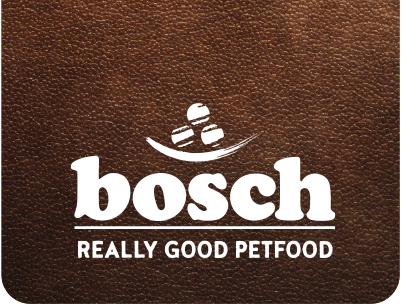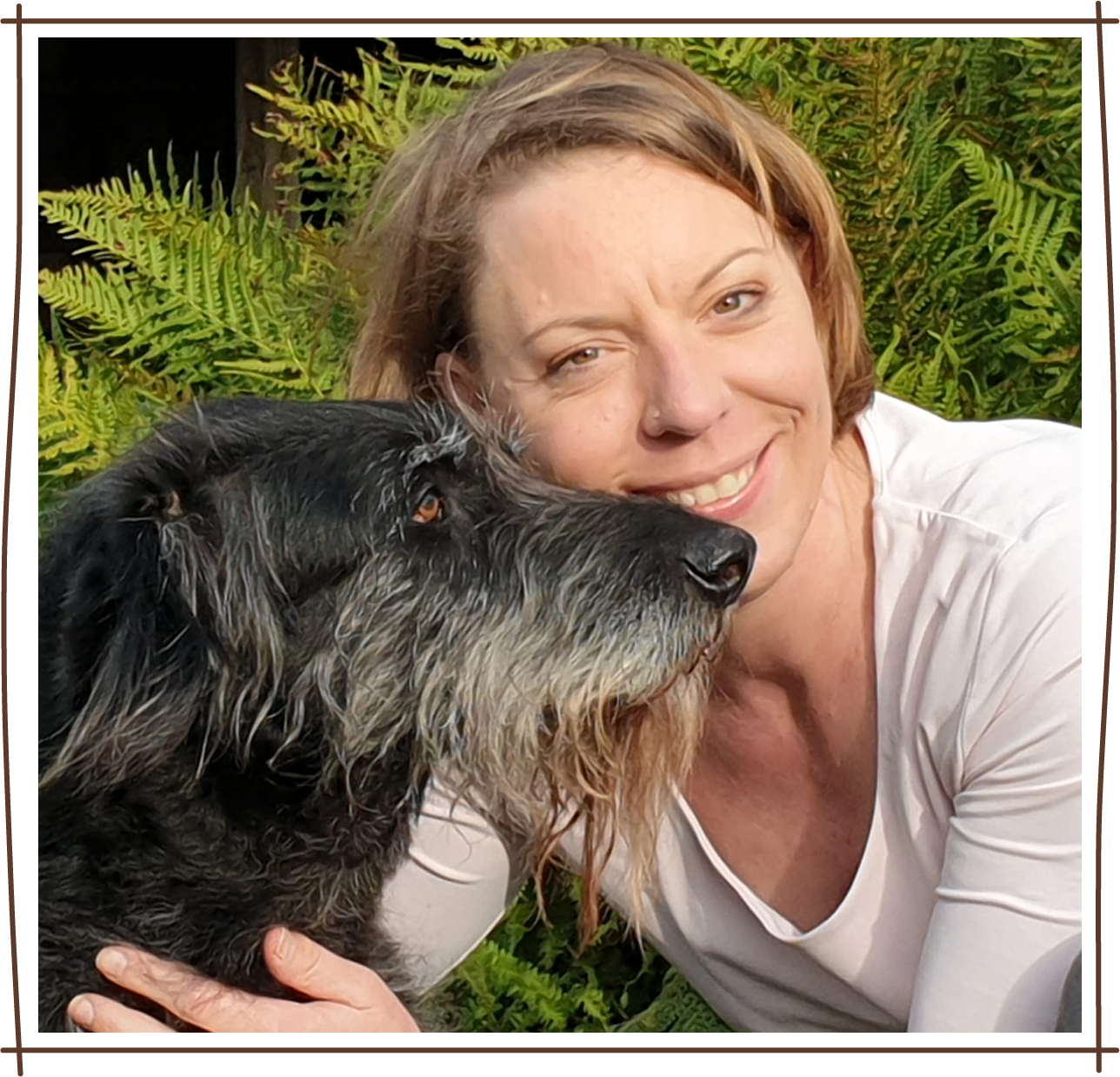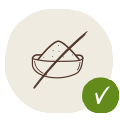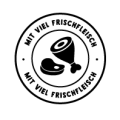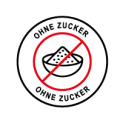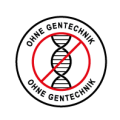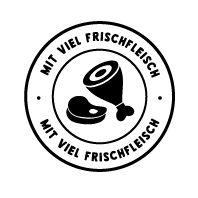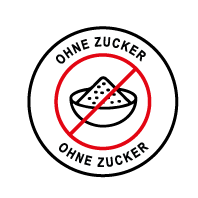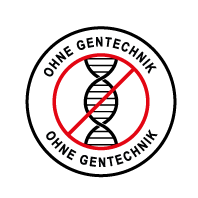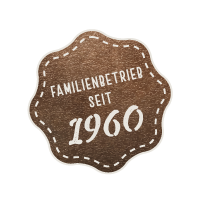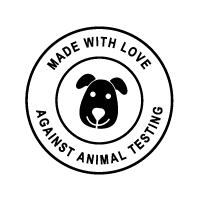
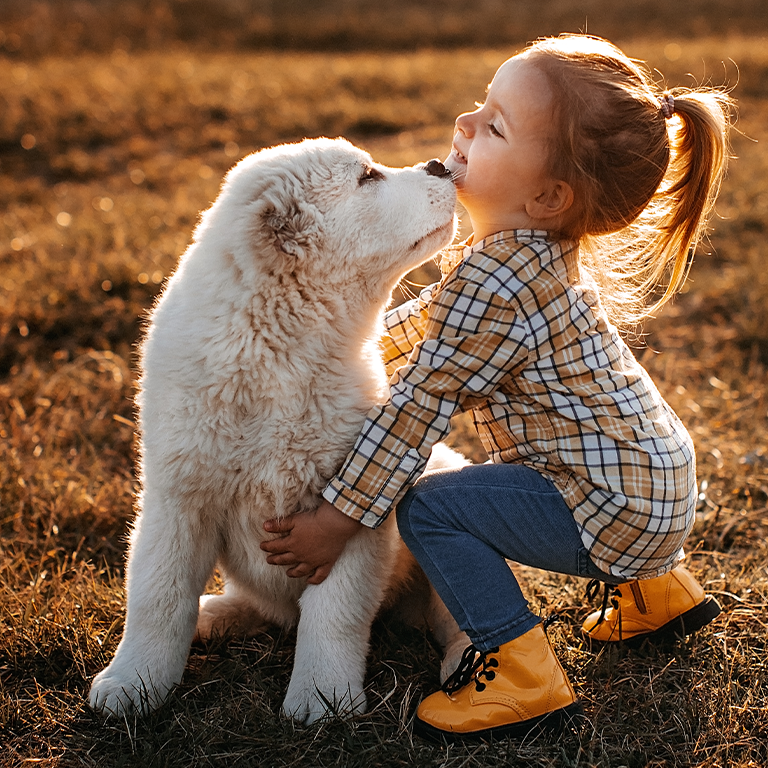
Young furry friends want one thing above all: to grow big and strong very quickly.
Proper nutrition for your puppy is the foundation for its further development and a long, vital and happy dog life. For healthy growth, the right amount of food and the supply of all nutrients are particularly important.
What does my growing puppy need?
In order to develop optimally in their first weeks of life, puppies only need their mother's milk.
Puppy milk can be used to raise a puppy without a mother and to ensure a gentle transition from mother's milk to solid food. Young dogs should not be given cow's milk.
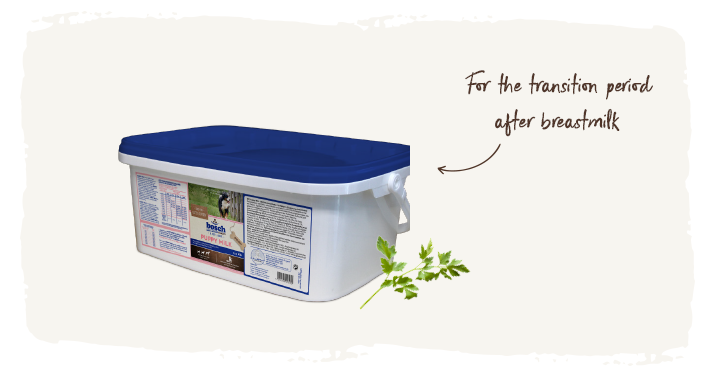

From the third week of life, additional puppy food can be fed to cover the increased need for vitamins, minerals and nutrients that your four-legged friend needs for healthy growth. Between the sixth and eighth weeks of life, the bitch usually stops nursing and the small dogs only eat solid food.
Does my young dog need puppy food?
When creating our complete feed, we follow official literature recommendations, such as: B. FEDIAF or NRC (Nutrient Requirements of Dogs and Cats). The differences in the energy and nutrient requirements of growing dogs compared to adult dogs are also described here. Per unit of energy, a puppy has a higher need for certain minerals, amino acids or vitamins, which is why we recommend using a complete food that is specifically tailored to these needs.
In our special junior recipes, the nutritional components are optimally tailored to the changing needs of your fur baby. The careful selection of high-quality ingredients that supports your puppy's growth and promotes joint development is the best basis for a vital dog's life.
Which food is best for my puppy?
When selecting food, the breed and the expected final weight play a decisive role. Very small breeds in particular need food with a higher energy concentration, especially with a higher protein and fat content. The Mini Junior is particularly ideal for breeds that will later have a final weight of less than 10 kg. For medium and large breeds, the protein and fat content are slightly reduced. We have developed the Medium Junior and the Maxi Junior for these dogs.
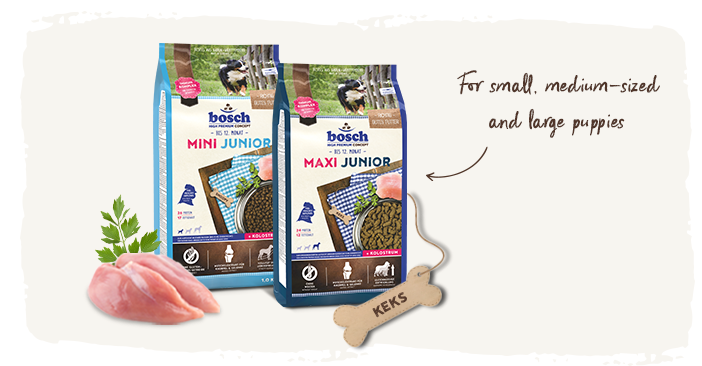

Our product range also includes various products for nutritionally sensitive puppies to meet the specific needs of your fur baby.
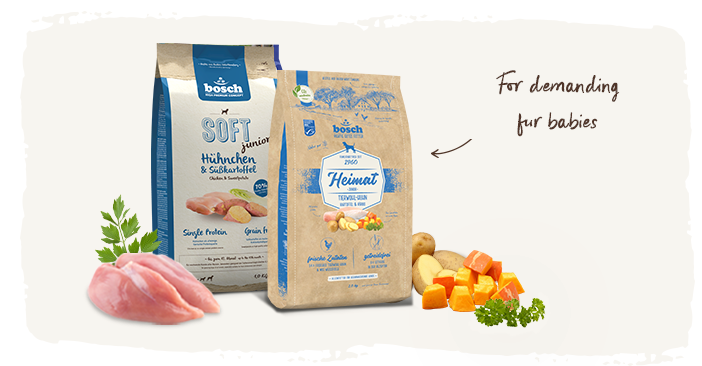

How do I change my puppy's food?
In the first 10 - 14 days that your puppy is in his new home, he has to get used to a lot of new things, so it is best not to change food during this phase. It is ideal to have the breeder provide you with food for the first two weeks. Even if you don't actually want to feed the breeder's food, you should only change the food once the dog has settled in well.
You can find further information in our guide article on changing feed.
How much food does my puppy need?
It is very important to know how much food your puppy needs, because excess food and therefore energy accelerates growth and can put too much strain on joints and the skeletal system during puppyhood. This concern is particularly common with larger dog breeds.
Our feeding recommendation will help you determine the correct daily ration of food (grams per day) for your fur baby.
Two pieces of information are relevant here:
- The age of the puppy, which determines the correct line in the feeding recommendation.
- The expected ideal final weight of the adult dog, which determines the correct column.
- The breeder or veterinarian can help if necessary.
When making our feeding recommendations - which also take daily energy requirements into account - we not only rely on literature values, but also on the experiences of successful breeders. The feeding recommendations for complete feeds for growing dogs are carefully calculated and are not artificially increased.
Since body mass development is subject to many other individual influences (e.g. temperament, attitude, etc.), we still generally recommend this regular monitoring of body mass development using puppy growth curves, e.g. B. are available from veterinarians.
How often should I feed my puppy?
Up to the sixth month, a feeding rhythm of three to four meals per day is suitable for most furry friends. After about six months, the feeding rhythm can slowly be reduced to two meals. Here it is important to observe your pet closely, because of course every furry friend can have different preferences and needs.
Should I feed my puppy supplements?
There are always recommendations on the Internet or among dog lovers to supplement the main food with a variety of additives and supplementary foods, be it minerals and trace elements, vitamins, oils or fresh meat.
It should be noted that the nutrient balance of feeding can be a very fragile matter. According to the law, all foods described as “complete feed” contain all the necessary nutrients that a dog needs in the respective development phase. Especially in the junior range, the nutrient balance is crucial for optimal development. This balance can quickly be upset by feeding different substances. Especially when it comes to minerals and fats, oversupply can, in the worst case scenario, lead to massive deformities in dogs within a short period of time.
Our complete feed is calculated to contain all the necessary nutrients. Supplementary feeding is therefore not only not necessary, but can lead to problems. For the reason mentioned above, treats and rewards should only be given sparingly and for special achievements.
Do you have any further questions about your puppy's diet?
Feel free to contact our nutrition experts. They will be happy to help you by e-mail and by telephone via our free hotline.
Phone: +49 (0) 800 333 8 222 (free of charge)
E-Mail: expertenteam@bosch-tiernahrung.de
Monday - Thursday: 7.30 - 12 o'clock & 13 - 16 o'clock
Friday: 7.30 - 12 o'clock & 13 - 15 o'clock
